NVMe SSD RAIDs are getting more popular in our days. It is an interesting question - what hardware to use to build more efficient RAID in terms of performance. Z390 chipset motherboard might include 2 or 3 NVMe slots for building of Raid 0 or 1 based on Intel® Rapid Storage Technology. Also, if a motherboard supports bifurcation, it can be used NVMe PCIe expansion cards. Some NVMe card don't request bifurcation but they are more expensive.
Performance tests have been done on ASUS Prime Z390-A motherboard with WD Blue SN550 1TB and Intel 660P 1TB NVMe SSDs used in RAID 1.
WD Blue SN550 NVMes have been installed in onboard slots whereas Intel 660P has been set up in ASUS HYPER M.2 X16 CARD V2 card.
AS SSD Benchmark 1GB data
Intel 660P
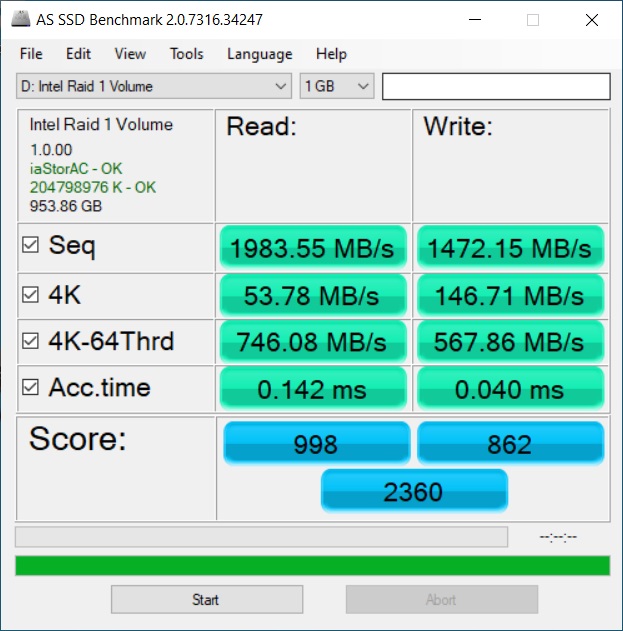
WD Blue SN550
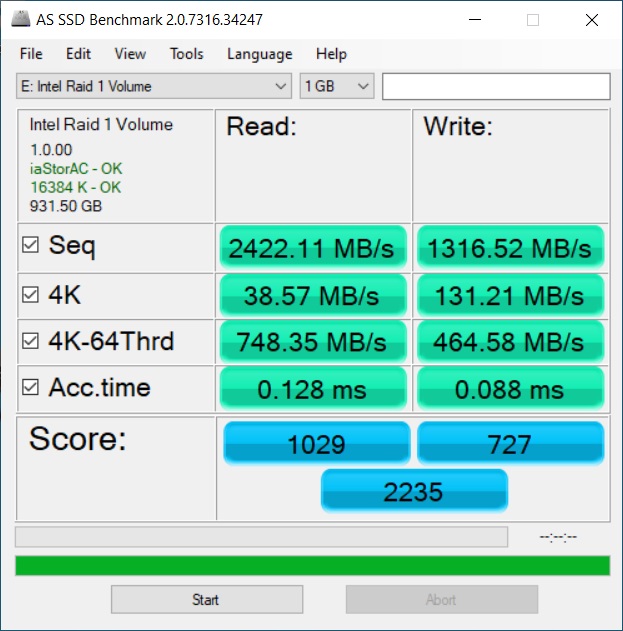
AS SSD Benchmark 10GB data
Intel 660P
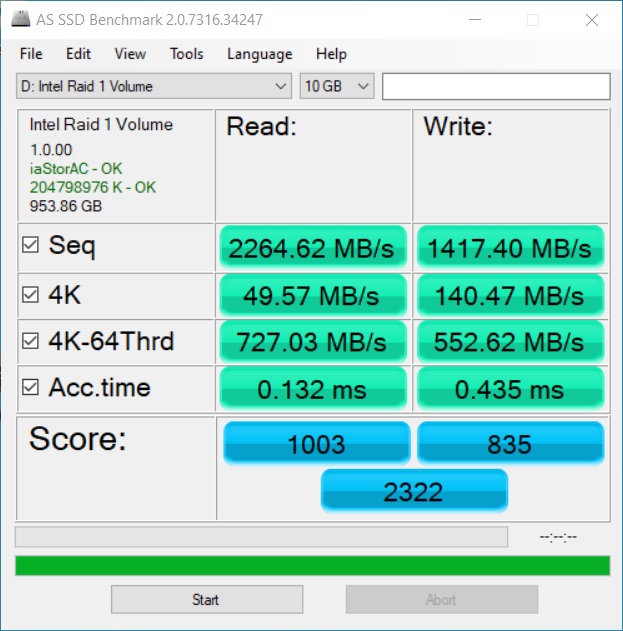
WD Blue SN550
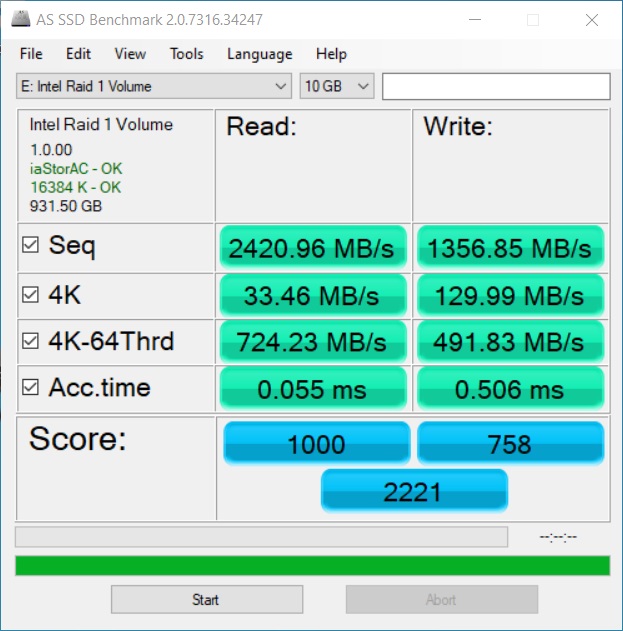
AS SSD Benchmark 1GB data with BitLocker encrypted
Intel 660P
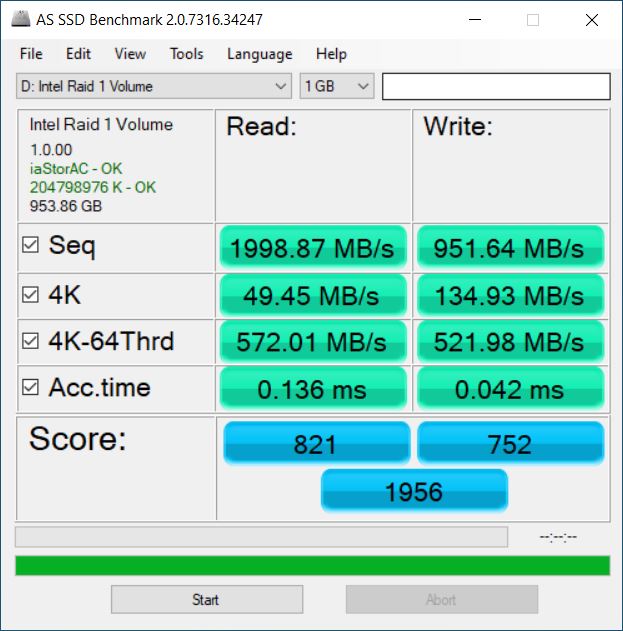
WD Blue SN550
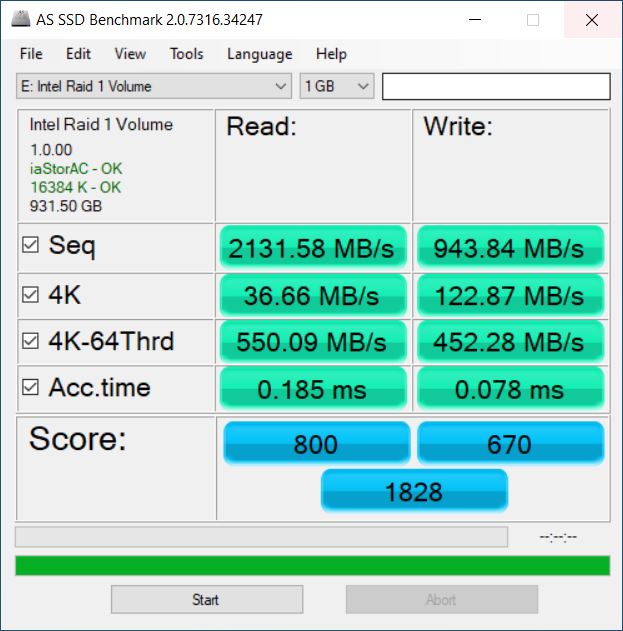
AS SSD Benchmark 10GB data with BitLocker encrypted
Intel 660P
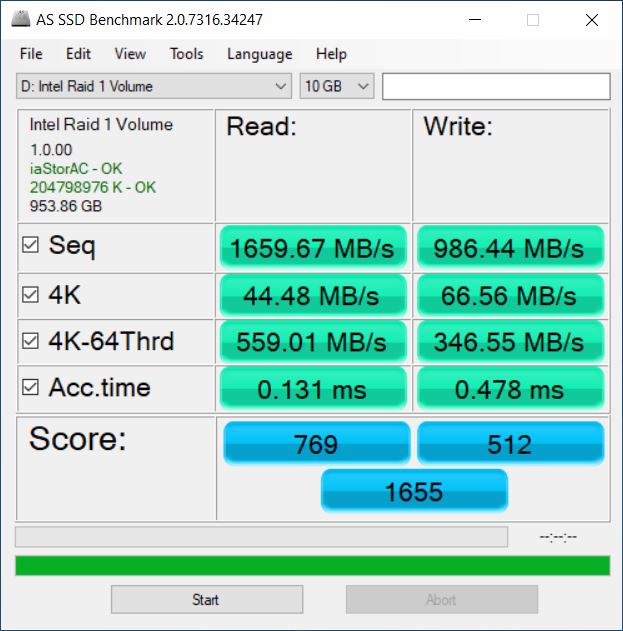
WD Blue SN550
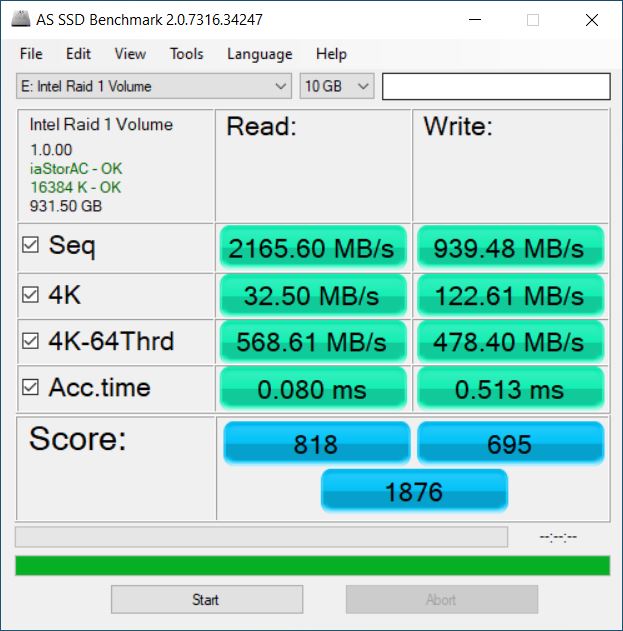
Conclusion
In spite of better performance in specification, Western Digital NVMe RAID is behind of Intel one in many tests. HYPER M.2 X16 card boosts performance of Intel RAID because of directly interfacing with the CPU's existing PCIe lanes. Also, Intel RAID is better than Western Digital one in all writing tests. Western Digital RAID overperforms Intel one in 10GB data chunks because Intel NVMe buffer is out of game. Copying a big data from or to Intel RAID is an issue as it starts throttling. The speed is dropping significantly and it gets comparable with existing hard drives.
 tech jogging
tech jogging
Comments
comments powered by Disqus